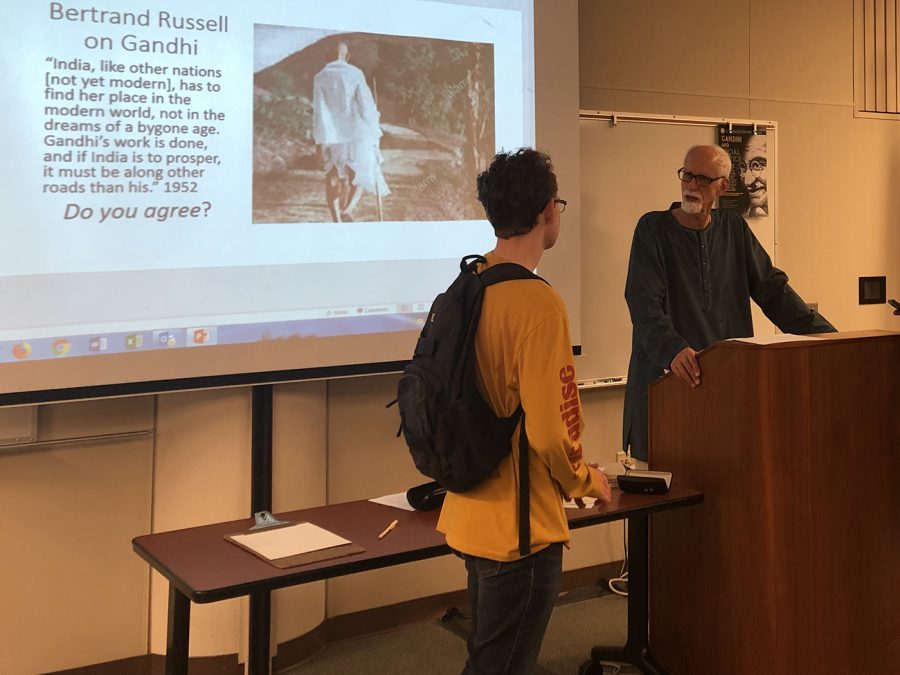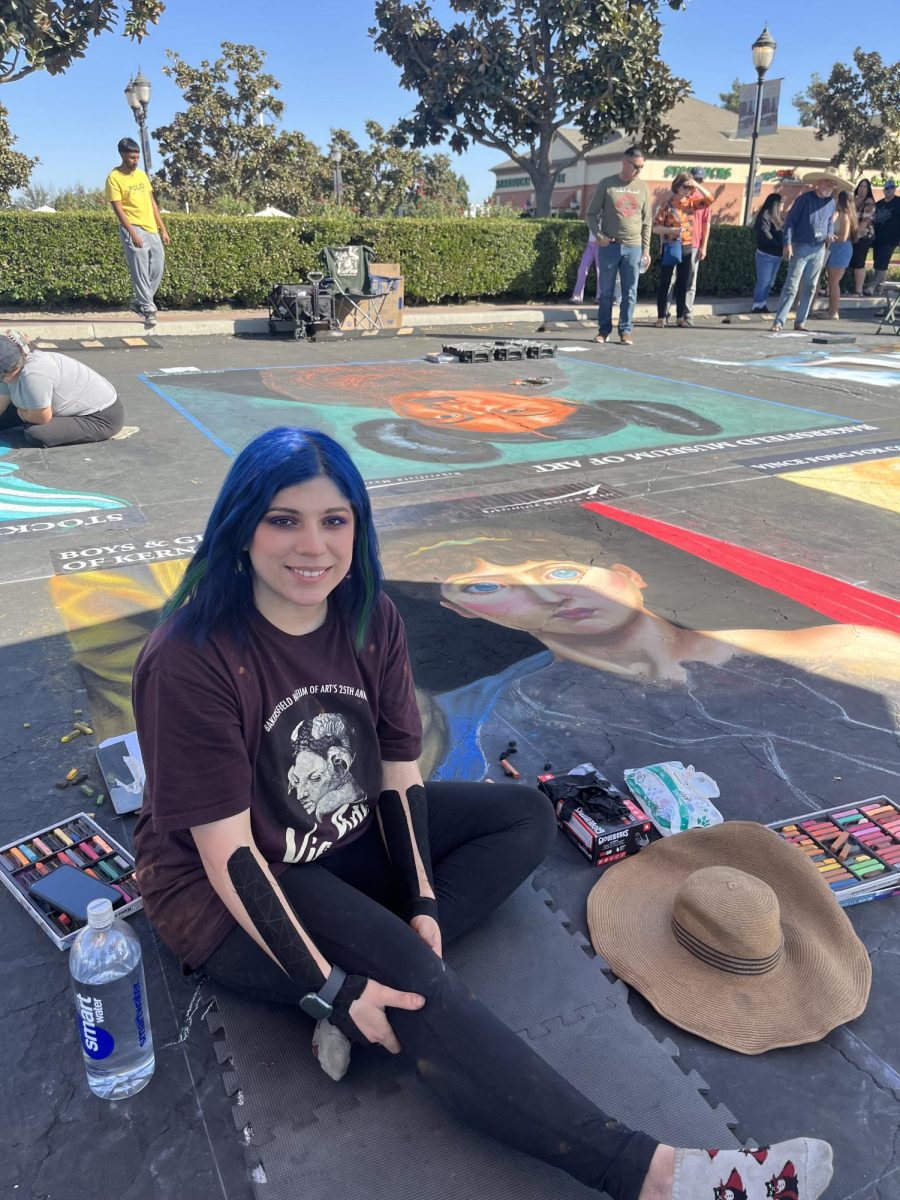Professor honors Gandhi in presentation
Stafford Betty speaks to a student following his presentation and lecture on Gandhi.
September 20, 2019
Stafford Betty, a religious studies professor at CSUB, presented a lecture on Gandhi’s life and lasting legacy at the Levan Center on Sept. 18 in celebration of Gandhi’s upcoming 150th birthday.
Betty spoke to a packed room full of students and community members. The lecture consisted of a powerpoint presentation, quotes from various publications, and Betty’s commentary.
Betty began the lecture by discussing details of Gandhi’s early life like his birth in Porbandar, India, disdain for school, failures as a lawyer, and rebellion against his religion. According to Betty, Gandhi became so turned off by the excessive ritualism practiced by Hindus, he became an atheist. That phase did not last long though, and Gandhi used his religion to fuel and inspire his life choices thereafter.
Betty then moved on to Gandhi’s formative years as a peace activist. The catalyst for Gandhi’s activism was when he was kicked off of a train for refusing to move to the third-class cabin, because of his race, despite having a first-class ticket. From that moment on, Gandhi would practice Satyagraha or effective peaceful resistance.
The remainder of the first half of the lecture focused on Gandhi’s ability to peacefully protest. He used spiritual persuasion over physical force. Betty says that Gandhi was unique because he did not back off when everyone else would have. With his persistence, he was able to charm people into becoming converts.
With two key examples, Betty proved that Gandhi’s legacy is everlasting. He discussed Obama’s keenness toward Gandhi and Martin Luther King’s practice of his techniques.
After discussing his most important points, Betty opened the floor up to questions and then continued with his lecture.
The second half of the lecture focused on why Gandhi fought for equality.
Betty stated that Gandhi believed people should worry about the good of the people instead of focusing on the fruits of their actions. To put it in a way that would resonate with students, he said they should focus on learning and contributing to the class instead of focusing on their grades.
He also encouraged students to make the world a better place. “Serving, giving of your talents, whatever they may be, can help the world become a happier place,” he said.
Finally, Betty discussed some things students could take away from Gandhi’s philosophies. He said that forgiveness would be freeing because “hatred only destroys you when you hate, not the person you hate, they do not care.”
Moe Korin, a student, said he came to the event to earn extra credit but ended up enjoying the night’s presentation. He said that if he learned anything from the night, it was to stop being afraid to study other religions. He said he would not go as far as becoming a religious studies major, but he would like to learn the subject on his off time as a hobby.








